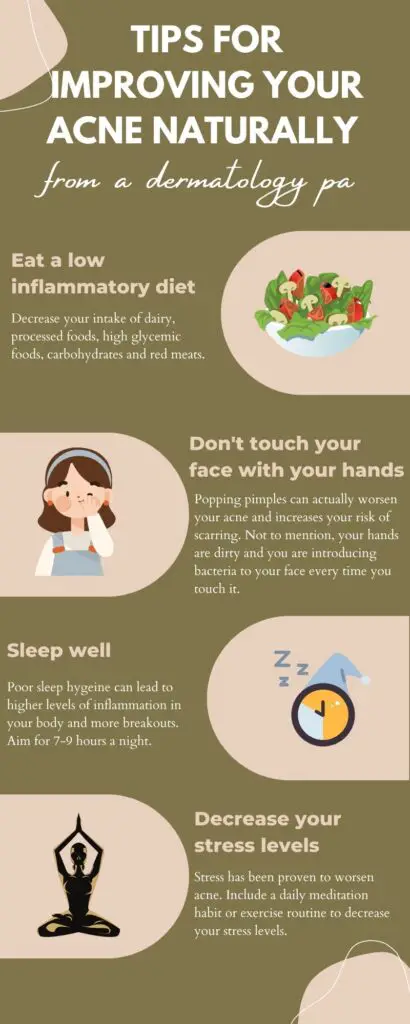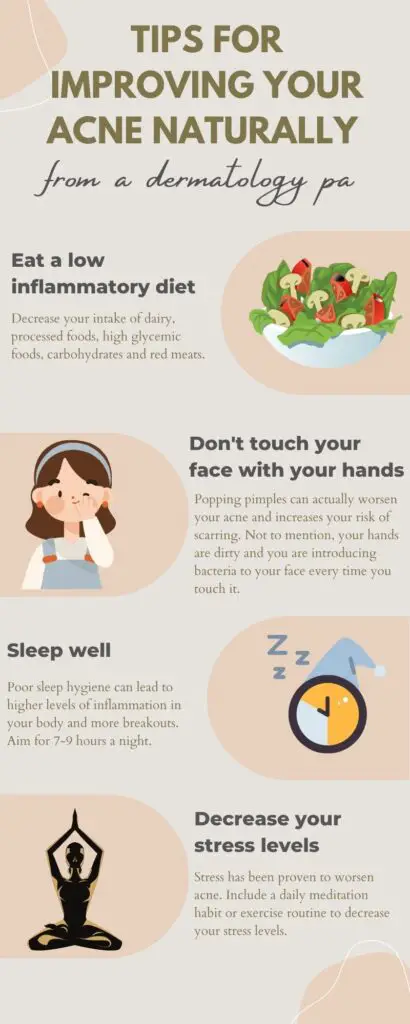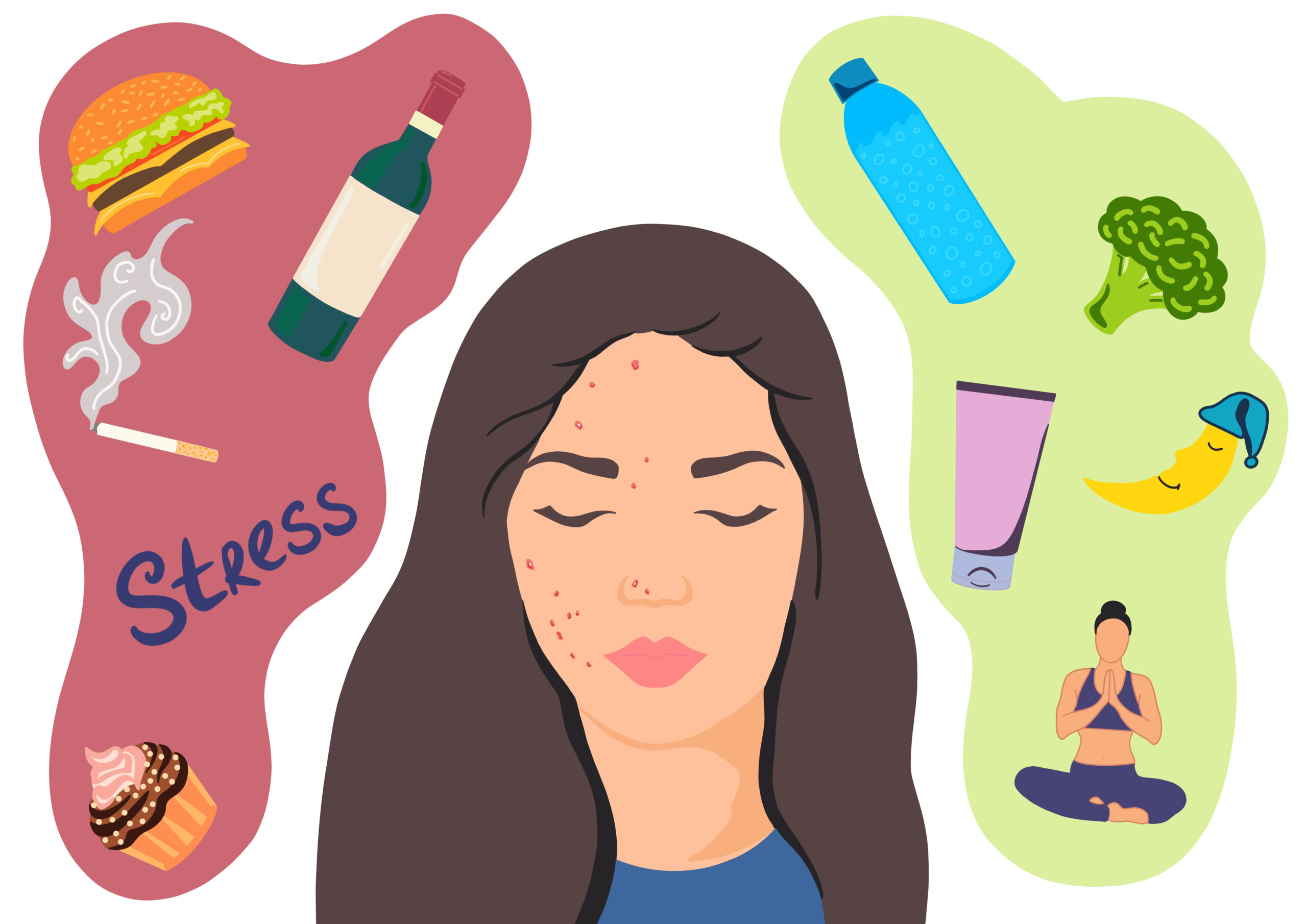Have you ever wondered why when you eat certain foods your face breaks out? Or maybe why your acne worsens during exam week at the end of the semester. Many people believe food and stress playing a part in your acne’s severity is a myth, but it is not. Minimizing your intake of these food groups as well as your stress level can improve your acne. The best part is it won’t cost you a dollar. Let’s dive in and learn a little more.
Acne and diet
You’ve read and heard it before. Your mom has told you your chocolate addiction is the cause of your acne. You roll your eyes and argue “but it can’t be”! I hate to break it to you, but your mom might be onto something here. Although chocolate isn’t necessarily the cause of your acne, studies do show that high glycemic load diets can worsen acne. What are high glycemic load diets? These are diets that are high in foods that can increase your blood sugar such as carbohydrates. If you want to try to improve your acne at home going low-carb could be a good place to start. A lot of people pay for expensive products marketed to clear their acne. Maybe cutting back on the extra helping of bread or the second bottle of Mountain Dew might be a more cost-effective treatment approach. Please don’t shoot the messenger.
Besides carbohydrates, there is one other food group that has been clinically proven to have a negative effect on acne. This other food category is milk products, specifically cow’s milk. Don’t worry, your almond milk lattes are still safe to drink. I have found that my teenage male patients coming to see me for their acne tend to drink a lot of milk.. at least according to their mothers. I haven’t done an official study but do you see the potential correlation? Similarly to carbohydrates, I don’t think it’s necessary to completely cut milk out of your diet. In fact, milk has a lot of great necessary nutrients such as vitamin D and calcium. Let’s just try to cut back on that second or third glass of milk per day, okay?
Acne and stress
Stress makes everything worse. In dermatology, we see patients who have lost their hair or have a bad eczema flare in times of extreme stress. Acne is no different. If you throw in school, a social life, hormones, and extracurricular activities there are a lot of stress-inducing elements of life, especially for young adults. Acne by itself can cause stress. People can then become stuck in this acne, stress, acne cycle.
What do people with acne do when they are stressed? They tend to pick at their acne and try to pop their pimples. No judgment here, I’ve been there I promise. Manipulating your skin in this manner can have negative impacts and could potentially lead to scarring. My number one goal when treating acne is to prevent scarring. So, when you find yourself feeling the need to squeeze that pimple, stop. Take a breath and distract yourself with something else. Learn how to knit if you have to! Anything to keep your hands away from your face. I promise you will thank me later.
Now that you have decreased carbs, milk, and stress from your daily lifestyle does that mean your acne will be cured? Unfortunately, that would be unlikely. Small studies have shown these two specific food groups and stress can worsen a person’s acne but are not the underlying cause. Sebum production and hormones play a larger role in acne and can sometimes be difficult to control without medication. The goal of minimizing your intake of high glycemic load diets and dairy is a great and inexpensive place to start to improve your acne. Check out my post on simple skincare products to use daily as another resource for improving your skin. When in doubt go see a dermatology medical provider to find a treatment regimen best for you and your skin!
*Disclaimer: Opinions expressed are solely my own and do not express the views or opinions of my employer. Information on this website is for education and entertainment purposes only. Content is my opinion. It is not substituted for your own doctor’s medical care or advice. One should not make any health or medical-related decisions based in whole or in part on any content on this site. Content is not intended to replace the services of a licensed, trained health professional. Content may not apply to you as an individual. Although I will update my website with current information, this website is not a definitive guide to dermatology.



View comments
+ Leave a comment